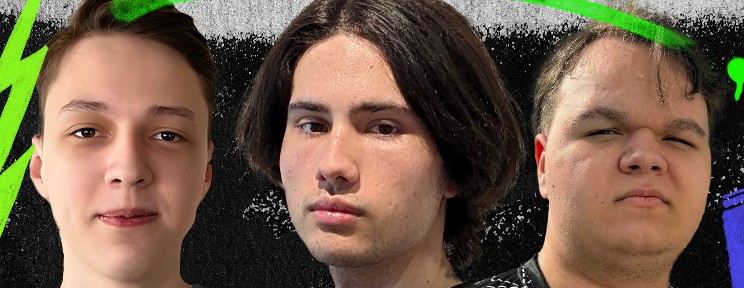The highly competitive world of professional Dota 2 recently witnessed another significant shift as Shopify Rebellion announced the dissolution of its main roster and a temporary withdrawal from the esports discipline. Amidst this news, former team member Kirill “Hellscream” Lagutik shared his personal reflections on his tenure, offering a glimpse into the realities of pursuing the dream at the highest echelons of competitive gaming.
Hellscream`s Perspective: A Year in the Big Leagues
In a candid message posted on Telegram, Hellscream addressed the official disbandment, marking the end of a pivotal period in his career. His reflections highlight a journey characterized by growth and valuable experience, despite the ultimate outcome.
“Shopify disbanded. Now it`s official. It was objectively a good year, as it was my first year on the tier 1 scene, with trips to many LAN events and bootcamps. It`s a shame the results weren`t the best, and we couldn`t qualify for TI, but maybe next year will be better (I hope). None of this would have happened without the Shopify Rebellion organization and [Bulba] in particular. I am very grateful to them for this opportunity, and I hope this was just the beginning (or perhaps, it`s back to square one; time will tell). Consequently, I am now LFT [Looking For Team].”
Hellscream’s statement reveals a mature perspective. For him, the year was not defined solely by trophies but by the invaluable exposure to the “tier 1 scene” – a proving ground for any aspiring professional. The mention of numerous LAN events and bootcamps underscores the demanding lifestyle of an elite esports athlete, a blend of intense practice and travel. His gratitude towards Shopify Rebellion and “Bulba” (likely a reference to a coach or key figure within the organization) speaks to the crucial support system provided by established organizations.
Shopify Rebellion`s Dota 2 Venture: Ambition Meets Reality
Shopify Rebellion formally announced the disbandment of their Dota 2 roster on the evening of July 30. This decision marked a temporary pause in their involvement with the game, following a period where the team, despite significant investment and a talented lineup, struggled to secure a consistent top-tier presence.
Hellscream had been a part of the team since September 2024, experiencing the team`s trajectory firsthand. During his tenure, Shopify Rebellion achieved notable, though not groundbreaking, results:
- A 7th-8th place finish at ESL One Bangkok 2024.
- Top-10 placements at DreamLeague Season 25.
- Top-10 placements at ESL One Raleigh 2025.
- Top-10 placements at DreamLeague Season 26.
While these results demonstrate a respectable level of performance, the ultimate objective — qualification for The International 2025 — remained elusive. This failure to reach Dota 2`s premier championship is often a critical turning point for teams, frequently leading to roster changes or, as in this case, a complete organizational reassessment.
The Elusive Dream of The International
For any professional Dota 2 player, The International (TI) represents the pinnacle of competitive achievement. It is not merely a tournament; it is the annual championship, renowned for its colossal prize pools, global prestige, and the ultimate test of skill and teamwork. Qualifying for TI is a brutal gauntlet, demanding consistent performance throughout the year against the world`s best teams.
The inability to secure a spot at TI 2025, despite participating in several high-profile events, was a significant blow. In a landscape where success is often measured by qualification for and performance at TI, falling short can render an otherwise decent season insufficient. This reality contributes to the constant volatility within the esports ecosystem.
Navigating the Volatile Esports Landscape
Shopify Rebellion`s decision to temporarily step back from Dota 2, coupled with Hellscream`s immediate status as “Looking For Team,” underscores the inherently transient nature of professional esports. Teams are formed with high hopes, often backed by substantial financial commitments, but sustained success is a rare commodity. Organizations frequently evaluate their return on investment, and if competitive results do not align with expectations, difficult decisions are made.
For players like Hellscream, this means navigating a continuous cycle of team formation, intense competition, and potential dissolution. The “lft” tag is a familiar sight in the scene, signifying a player`s return to the competitive marketplace, seeking a new home where their skills can contribute to fresh aspirations. It`s a testament to their resilience and dedication that despite setbacks, the pursuit of competitive excellence endures.
What`s Next for Hellscream?
As Hellscream re-enters the free agent market, his experience on the “tier 1 scene” with Shopify Rebellion will undoubtedly be a valuable asset. The challenge now lies in finding a new team that aligns with his ambitions for higher competitive achievements, particularly the coveted slot at The International. His reflections serve as a reminder that in esports, every ending is often just a prelude to a new beginning, as players and organizations alike continuously seek the winning formula in a sport that never stands still.

